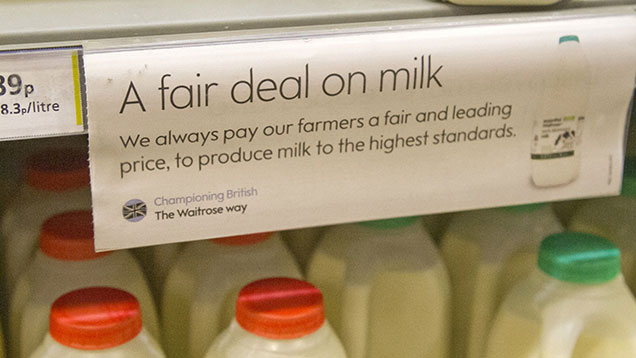Farm leaders in dairy talks with ministers
 ©Amer Ghazzal/REX
©Amer Ghazzal/REX Farm leaders are urging government ministers to do more help Britain’s beleaguered dairy industry.
Farming representatives across the UK will meet Defra secretary Liz Truss and her counterparts from Scotland, Wales and Northern Ireland on Monday (17 August).
It follows a week of protests by dairy farmers – many of whom continue to be paid below the cost of production for milk – despite recent price rises by supermarkets.
See also: Ministers set for talks as farm crisis deepens
The meeting between farm leaders and government ministers is due to start at 2pm in London.
Although industry leaders have warned that sectors other than dairy also face problems, the meeting is expected to focus largely on milk.
Members of the Farmers For Action pressure group were out in force in both Cheshire and Bristol on Sunday evening (16 August).
Following further talks on Friday, Morrisons agreed to pay a minimum of 26p/litre to processors for liquid milk from later this month and through the winter.
Meanwhile, Aldi, Lidl and Asda have agreed to pay at least 28p/litre for milk.
While the price increases have been welcomed, milk costs many farmers more than 30p/litre to produce and farm leaders have warned that there are no quick fixes to the crisis.
“We recognise that this is not about seeking a quick fix solution,” said Ian Marshall, president of the Ulster Farmers’ Union, ahead of Monday’s meeting.
“The problems the industry faces need both short- and long-term action, and will be making that clear to the secretary of state at the meeting.”
Mr Marshall said farm leaders wanted the UK government to press the EU farm commissioner Phil Hogan to accept there is a need to review the intervention price for dairy products.
Longer term issues also needed to be addressed, said Mr Marshall.
“These centre on supermarkets needing to pay a price that will ensure the already poor 60% level of self-sufficiency for UK food does not get worse,” he added.
“We do not want politicians to give glib answers or seek to make headlines with solutions that do not really solve the deep problems the industry is facing.”
